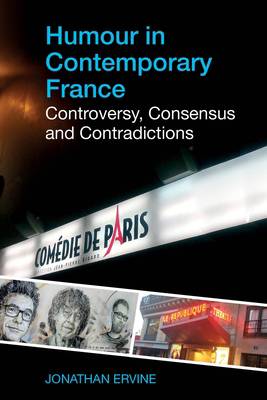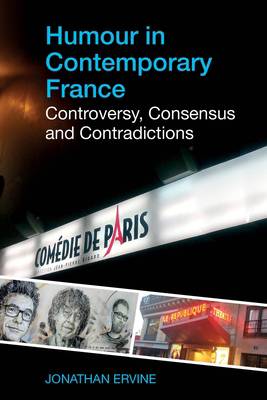
- Retrait gratuit dans votre magasin Club
- 7.000.000 titres dans notre catalogue
- Payer en toute sécurité
- Toujours un magasin près de chez vous
- Retrait gratuit dans votre magasin Club
- 7.000.0000 titres dans notre catalogue
- Payer en toute sécurité
- Toujours un magasin près de chez vous
Description
This timely study sheds new light on debates about humour and identity in France, and is the first book about humour and identity in France to be published in either English or French that analyses both debates about Charlie Hebdo and standup comedy. It examines humour, freedom of expression, and social cohesion in France during a crucial time in France's recent history punctuated by the Charlie Hebdo attacks of January 2015. It evaluates the state of French society and attitudes to humour in France in the aftermath of the events of January 2015. This book argues that debates surrounding Charlie Hebdo, although significant, only provide part of the picture when it comes to understanding humour and multiculturalism in France. This monograph fills significant gaps in French and international media coverage and academic writing, which has generally failed to adequately examine the broader picture that emerges when one examines career trajectories of notable contemporary French comedians. By addressing this failing, this book provides a more complete picture of humour, identity, and Republican values in France. By focusing primarily on contemporary comedians in France, this book explores competing uses of French Republican discourse in debates about humour, offensiveness, and freedom of expression. Ultimately, it argues that studying humour and identity in France often reveals a sense of national unease within the Republic at a time of considerable turmoil.
Spécifications
Parties prenantes
- Auteur(s) :
- Editeur:
Contenu
- Nombre de pages :
- 208
- Langue:
- Anglais
- Collection :
- Tome:
- n° 3
Caractéristiques
- EAN:
- 9781789620511
- Date de parution :
- 01-11-19
- Format:
- Livre relié
- Format numérique:
- Genaaid
- Dimensions :
- 157 mm x 239 mm
- Poids :
- 340 g

Les avis
Nous publions uniquement les avis qui respectent les conditions requises. Consultez nos conditions pour les avis.






